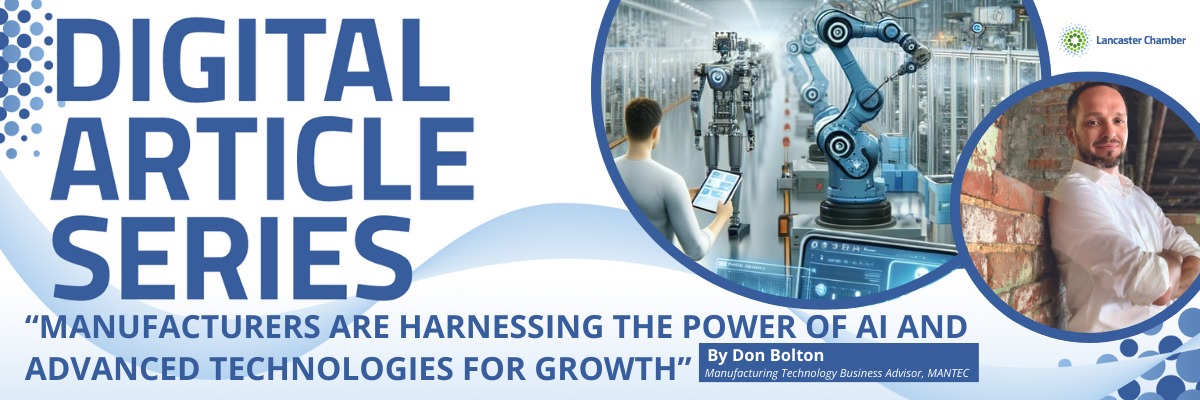By Don Bolton
The relationship between technology and business is redefining how companies operate, compete, and deliver value. Across South Central Pennsylvania and beyond, manufacturers are demonstrating remarkable resilience and adaptability in the face of rapidly changing market conditions.
Automation is also playing a pivotal role in this technological revolution. Manufacturers are harnessing automation to optimize repetitive and labor-intensive tasks. Robotic arms and automated assembly lines are enhancing precision and speed, resulting in higher production rates and lower error margins. This consistent quality assurance is vital for meeting customer demands.
Artificial intelligence has emerged as a cornerstone for small and mid-sized manufacturers. These businesses are finding ingenious ways to integrate AI into their processes to boost efficiency and competitiveness. AI’s data-driven decision-making capabilities enable manufacturers to optimize production and resource allocation, identify potential issues in real time, and make faster, more-informed choices. This reduces their operational costs and enhances overall productivity, which improves their bottom lines.
AI’s role in predictive maintenance, quality, scrap reduction, yield increase, and demand and inventory forecasting can have significant positive financial impacts. By analyzing historical data, AI can predict machine behavior, quality failures, and demand for parts, enabling manufacturers to minimize waste, extend the lifespan of critical machinery, and optimize inventory.
Data analytics is another crucial component of the AI toolkit. Manufacturers are using analytics to gain actionable insights from their operational data. This information also supports strategic decisions, allowing for better adaptation to market trends and customer preferences. In essence, data analytics is the compass that guides small and mid-sized manufacturers toward success.
This synergy extends well beyond the factory floor. Strategic manufacturers are making investments in integrated systems that facilitate seamless communication and decision-making throughout their entire organizational hierarchy. We’re starting to see the adoption of a concept known as a Digital Twin—a virtual representation of a physical object, system, or process generated by using real-time data and simulations—to provide a highly accurate digital reflection of the real world. This twin allows continuous monitoring, in-depth analysis, and predictive insights into the performance and behavior of the actual physical entity, giving decision-makers access to real-time data. We have seen that early adoption of AI and robotic automation can set SMEs apart from their competitors.
These trends are becoming more noticeable locally as companies look to AI and automation to solve ongoing workforce shortages. But the shift towards AI is not just about replacing human labor, it’s about enhancing human capabilities. AI and automation are not only revolutionizing manufacturing processes but are also creating a symbiotic relationship between humans and machines, leading to innovative solutions and a more resilient industry. The future of manufacturing lies in the strategic implementation of AI, collaborative partnerships, and encouraging environments where technology and human expertise merge to drive efficiency, innovation, and growth.
MANTEC, a non-profit on a mission to help manufacturers remain competitive and grow, offers a free Technology Assessment. Contact: Don@mantec.org
Don Bolton is MANTEC’s Business Advisor for Manufacturing Technology. He hails from Michigan where he was a design and process engineer serving clients such as General Motors, Chrysler, Kuka, and Comau. Prior to that, Don was a welder fabricator for 12 years for clients such as TTX, Cannon Truck Equipment, and the DOD. In his role at MANTEC, he leverages his experiences to aid manufacturers in assessing their technology needs and integrating advanced solutions.
Don Bolton
Manufacturing Technology Business Advisor

not secure

